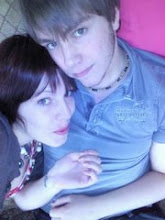Women Working in the Computer Games Industry
Introduction
"Using data extracted from a large study of female game workers, this study adds to the scarcity of research into the area of women working in the computer games industry."
This article brings to our attention how occupational segregation still occurs in this male dominated industry. Gender role, identity and attitudes are important issues when discussing segregation within the industry. Implications of this on the future of the games industry are discussed.
"Occupations are social categories; people within an occupation share things such as preferences and experiences." (Weeden and Grusky, 2005)
"Therefore, occupational categories are an important part of a person's sense of self." (Taylor, 2010)
Background - Occupational Segregation:
In a study performed recently, Mumford and Smith (2007) found out that the earnings gap between men and women in Britain is due to a combination of many things: The different personal characteristics or traits between men and women, workplace segregation and occupational segregation. When certain jobs are designated to woman over men, those jobs usually pay less, have fewer opportunities for progression, less job autonomy and less authority within the organisation.
The woman involved in male dominated occupations have been found to receive much less support than men, but more support in mixed gender occupations; in comparison to men receiving high levels of support in female-dominated occupations. "Therefore, being in the minority is an advantage for men, but a disadvantage for women."
Segregation in SEY and ICT Industries
The WWW-ICT report suggests that ICT organisations have nothing but a flat structure with very little hierarchy. It can become particularly difficult for women to gain advancement due to the creation of an informal working environment as a direct result of the 'flat' organisation within the business.
James and Cardador (2007) stated that women's cognitions and beliefs about technology and science are more negative than mens, resulting in a distinct disinterest in the employment sector. One of the reasons for this disinterest in computer games as an occupation is the long hours that have become standard within the industry. For example Wajcman (2007) argued that women are requested to change aspects of their gender identity for a masculine version and forsake the 'International Journal of Gender', their femininity without this de-gendering process occurring for men. It is also proposed that women in ICT and SET industries must develop strategies (Newell, 2002). One strategy is for women to make their gender identity invisible (griffiths et.al, 2007) or become more masculine (Wajcman, 2007).
Technology does indeed have a masculine image, not only because the industry is dominated by men byt because sybols are incorperated, metaphors and values that have masculine connotations. (Wajcman, 2007, p.289).
Segregation in the Games Industry
There are a number of specialties within the games industry including development, production, design, audio design, art and testing. (Green, et.al, 2007) The percentage of women occupying creation or development roles within the UK games industry (which contains over 9000 employees) is around 6.9% (MCV, 2008). More figures produced in 2009 by Skillset found that women represent 4% of the game industry's workforce, a decrease from 12% in 2006! (Skillset, 2006).
Only 0.4% of femalte employees in the UK games industry are in lead, director or management positions, whilst 1.2% of male employees hold these jobs. Research by Haines (2004) found that nearly a quater (23%) of senior positions within the twenty UK games companies in her study were filled by women. However, Haines revealed that senior women were more often found in managerial and senior roles in the less technical areas of games development or in areas more associated with traditional female roles, such as marketing, rather than direct games development.
Discussion
These findings highlight the different attitudes of women working in the games industry. This paper has effectively shown the differences between women in each profession and grades in terms of gender role identity at work and their attitudes towards the career barriers to women's career progression and to a lesser extent their attitudes towards their own career progression. Just like the wider ICT and SET industries, women need more representation in all areas and roles within the industry. Occupational segregations definitely still persists in this new, male dominated industry.
"With regard to professional identity, the finding that executives having a significantly higher masculine gender role identity compared to artists/animators is interesting since it could suggest that women in a powerful executive position International Journal of Gender, either adopt of naturally have more masculine characteristics than those in other areas if of the games industry, especially those in the more creative artistic roles in game development."
"Feminine traits include warmth, kindness, selflessness and sympathy. Masculine traits include aggression, forcefulness, rationality, competitiveness, decisiveness, strength, self-confidence and independence. (Schein, 1973)." Quite a sexist remark said by Schein.
This particular reading does feel quite sexist, despite the statistical evidence used (which is useful to an extent). I feel as though the article gradually becomes more repetitive simply re-iterating the negative one-sided view of the industry, broadcasting factual evidence influenced by their own personal beliefs, opinions and experiences. Only the facts required to promote their personal views are acknowledged. The questions asked to female employees were also not asked to any male employees, providing a slightly biased amount of statistics.
"The games industry may be relatively new, but it is a large industry with a significant influence over today's media landscape." (Wallop, 2009)
-

"The only legitimate use of a computer is to play games." - Eujene Jarvis (Defender, Stargate, Robotron, Smash TV, etc)
-

"Do weird and difficult things." - Masaya Matsuura (Musician on games such as Major Minor's Majestic March)
-

"A single-player game is really a movie that you create in cooperation with the player, where the lead actor doesn't have a copy of the script." - Gabe Newell (Valve)
-

"Genius is 1% inspiration and 99% perspiration." - Thomas Alva Edison





0 comments:
Post a Comment